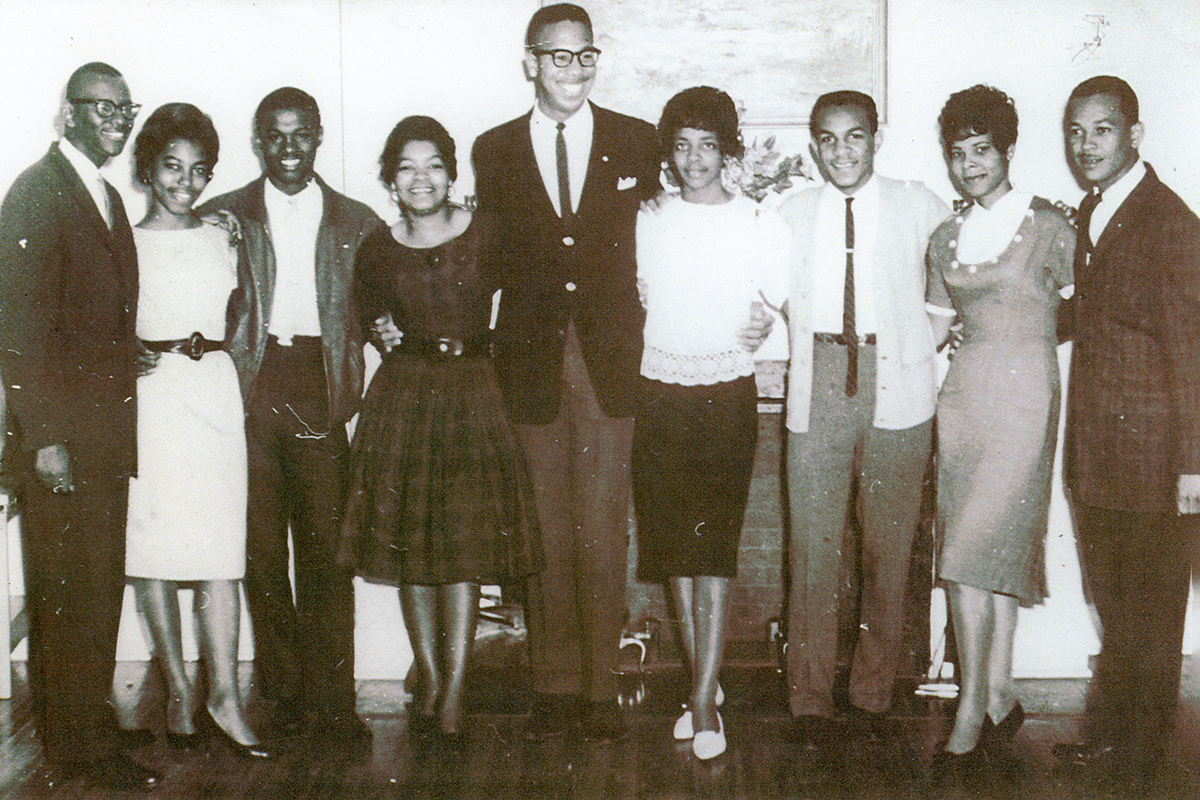As a child in Columbus, Miss., Daphne Chamberlain always recognized the significance of exercising her right to vote. Her elementary school had a small publication filled with commentary and drawings surrounding the presidential election between Michael Dukakis and George Herbert Walker Bush in 1988 as a way to get the students involved even though they weren’t old enough to vote. Her family also had conversations about the presidential election at home around the dinner table.
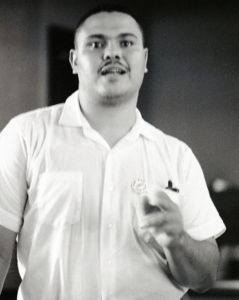
During her years at Tougaloo College in the late ’90s, Chamberlain was able to converse with civil-rights veterans, with now-deceased Lawrence Guyot, chairman of the Mississippi Freedom Democratic Party, as one of the first people she talked with about these topics during those years.
“He absolutely scared me because he was loud and boisterous, but he was really passionate about what he was speaking about,” Chamberlain told the Mississippi Free Press about Guyot. “Just to tell young people that they have a responsibility and, of course, not to rest on their laurels as if we have arrived just because those folks from his generation opened doors for us.”
Her time at Tougaloo taught Chamberlain that though presidential elections are important, power is held at the local level, too, and that those elections determine what is going to happen from day to day in the community, she said.
“There’s a lot of work that has to be done, and each and every one of us has a gift and a talent to carry the torch in such a way that is going to change the world and transform people’s lives and communities,” she explained.
Now, she is working with her alma mater to help others use their talents to work for voting rights and access in Mississippi.
Not Every Citizen Has the Right to Vote
Chamberlain, now the vice president of Tougaloo College’s Strategic Initiatives and Social Justice, said hearing stories of the struggle for Black freedom from her grandparents also helped her understand the importance of voting and fighting not just for herself, but for other people and future generations.
“What I try to impress upon students is that we can get excited about a presidential election, but we need to have that same energy and excitement when it’s time to go vote for the mayoral election, when it’s time to go vote in the gubernatorial election … and any other position that will determine the outcome of what is going on,” Chamberlain said.
But not every citizen has the right to vote. In 2020, felony disenfranchisement rates were 10% or more in the state of Mississippi with more than one in seven African Americans disenfranchised, the Sentencing Project reported.
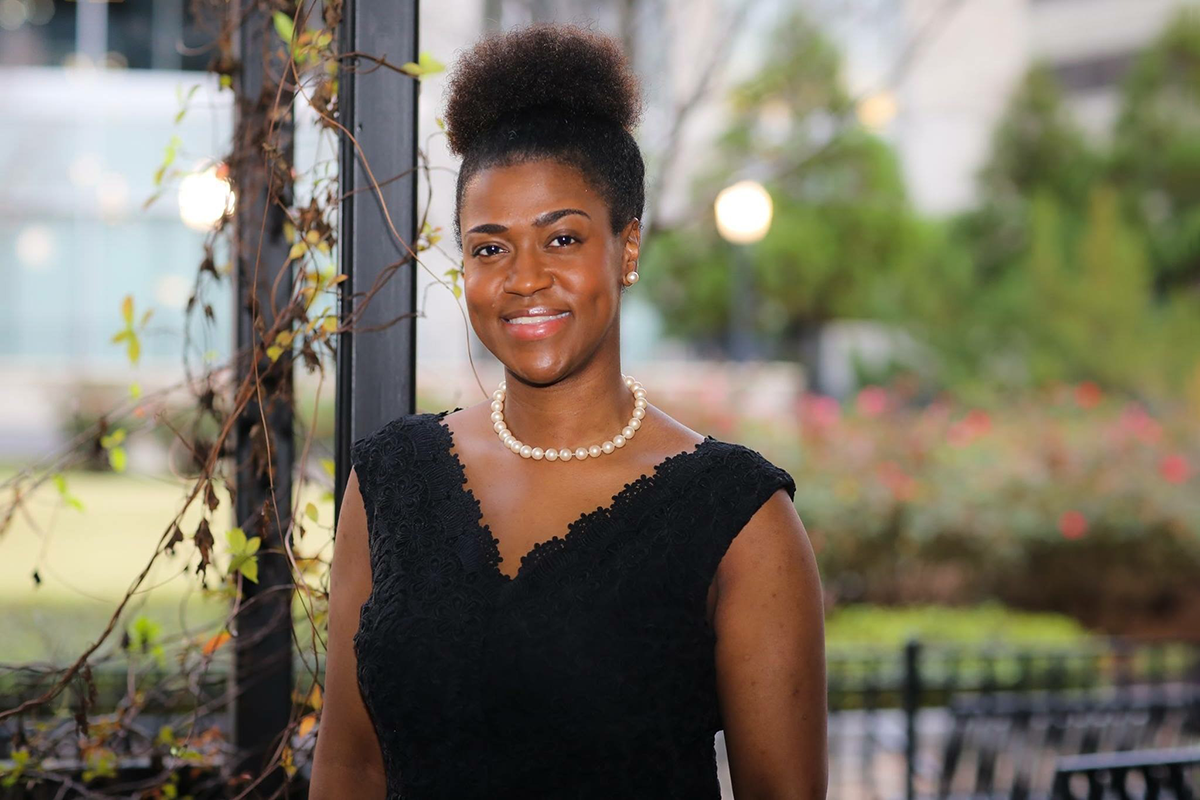
Voter restoration is one of many issues plaguing Mississippi, but a new collaboration between the Southern Poverty Law Center and Tougaloo College is looking to train the next up-and-coming generation of activists to effectively work toward voting rights with an advocacy institute.
The institute is a five-week training program for emerging activists and advocates across the state who are interested in advancing issues that affect their communities. Organizers will train participants on voting-rights restoration.
“The most concerted work to end felony disenfranchisement is already being done by the people most deeply impacted by it,” John Paul Taylor, SPLC field director for voting rights, said in a press release. “The goal of the institute is to build the foundation of power so that this movement can be led directly by impacted folks, but in a more cohesive way.”
‘Miss Social Justice’
Southern Poverty Law Center State Office Director Waikinya Clinton said the organization collected local data from Peyton Strategies, a data firm based in Jackson, and found that some issues were starting to register with people across the state, including but not limited to criminal-justice reform, education and health care.
“There was a need to reinvigorate people around what was happening in Mississippi,” Clinton said. “So much was being decided that would impact people, and people were feeling like they didn’t have a say or role in it. We wanted to see what it would be like to really help reposition the power back into the hands of the people.”
SPLC came up with creating an advocacy institute that would position the state back to its civil-rights roots: organizing.
“We’re no stranger to what can happen when people come together and really advocate to effectuate change, so SPLC just thought it would be a great opportunity for us to get in and lock arms with our partners all across the state to help feel that apparatus,” the state director said.
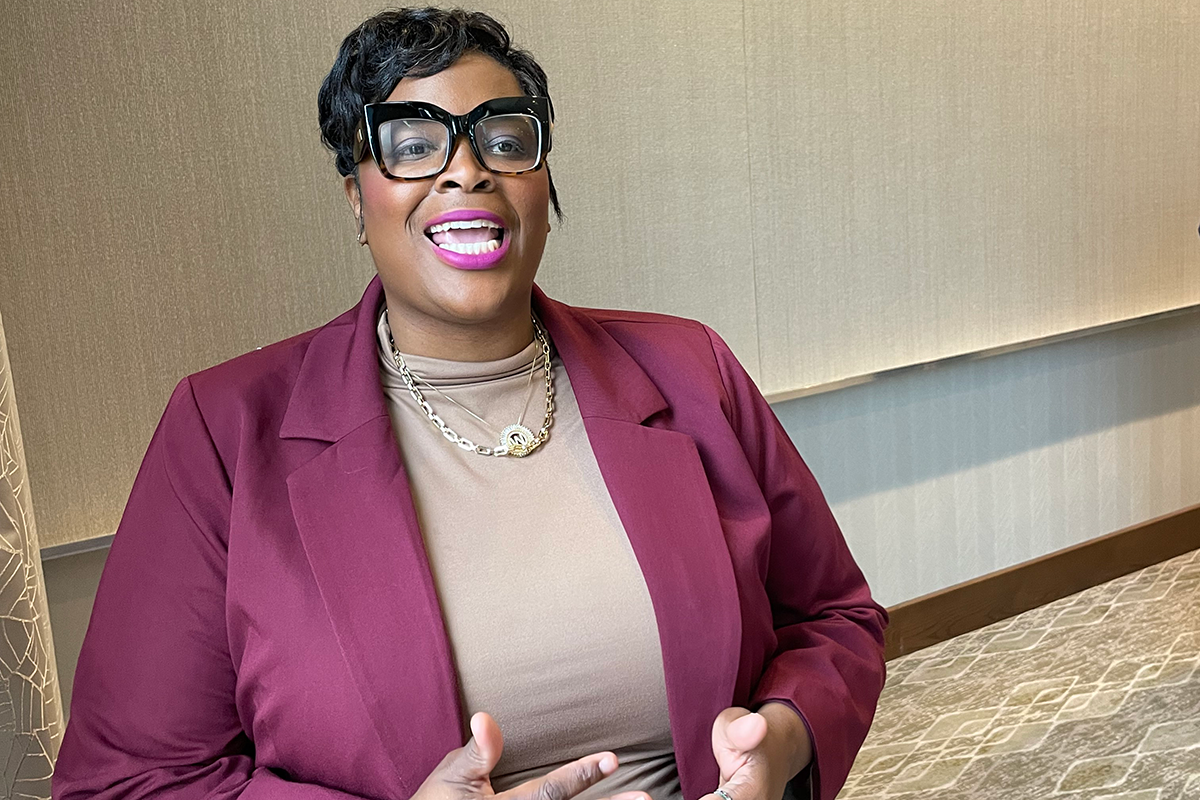
The program will work with 30 participants, who will be trained on re-entry and voting-rights restoration. The curriculum is designed to focus on the holistic framework of organizing, where it can be applied no matter the issue, Clinton explained.
“That’s what we’re really looking forward to, one that teaches our participants around the story of self and why their stories are so important to the work that needs to take place here in the state,” she said.
“Often you have people who are making decisions for people based off what they want, what they think they want,” Clinton added. “But it’s a different thing when you have folks who are part of the change, who have the lived experience, and who can address it and approach it from a position of knowledge.”
‘Tougaloo College Was a Safe Haven’
When the center began considering locations to host the institute, Clinton said Tougaloo College, a historically Black college and university in Tougaloo, Miss., just north of Jackson, felt like the natural choice.
“Tougaloo College was a safe haven during the Civil Rights Movement, (and) it remains a safe haven and a breeding ground for young activists and advocates to this day,” she said. “I’m a product of the school. … There’s something special about walking in the same footsteps that were shared by Medgar Evers and Martin Luther King and Fannie Lou Hamer and so many others.”
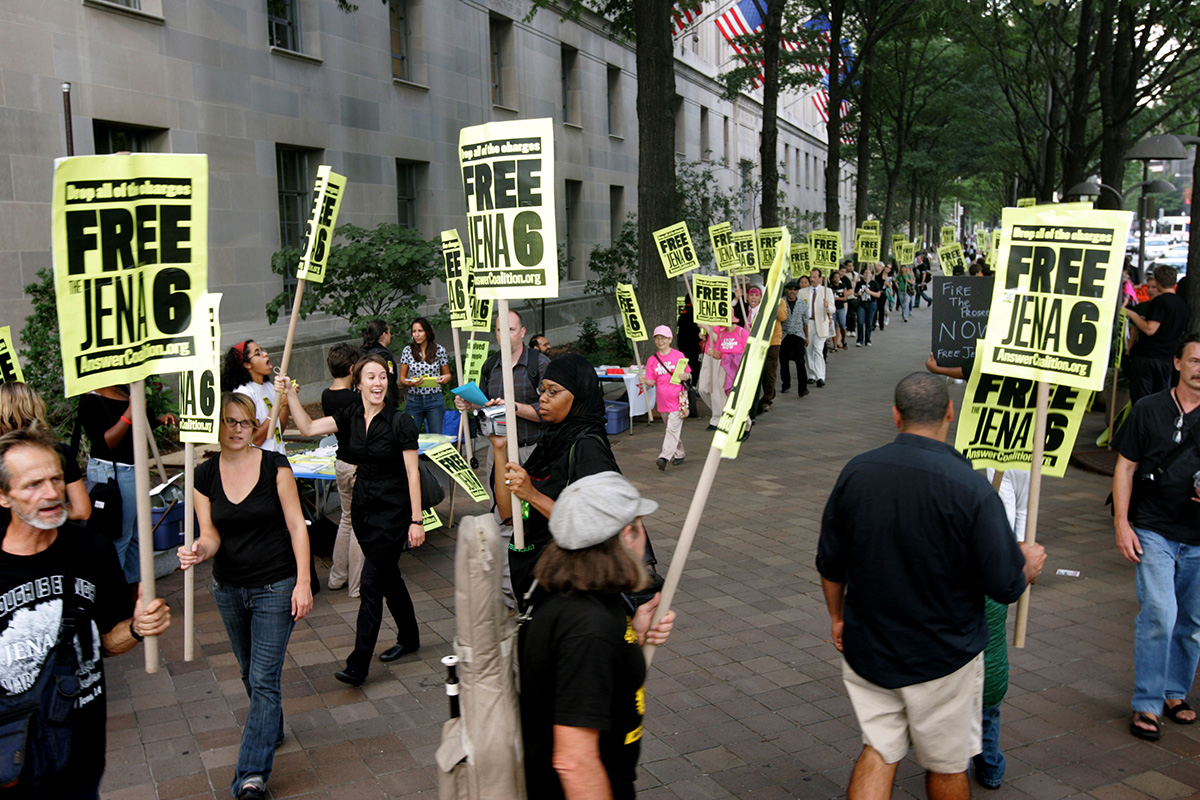
During her time at Tougaloo, Clinton said she was known as “Miss Social Justice.” She served as the branch president of the college’s NAACP chapter and helped lead a group of students from Tougaloo and Jackson State University to Jena, La., for the pivotal Jena Six march.
“Civil rights is baked into my blood. My grandmother was a civil-rights person as well. She was an active part of the NAACP in our hometown of Canton, and so that was definitely a big role in my advocacy,” she explained.
Clinton also participated in the student government, ran the social-action committee for her sorority and now serves on the national social-action committee for her sorority, she said.
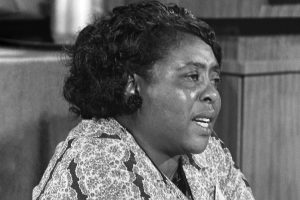
“It’s not just about me, but it’s about the fact that this is the type of work that needs to happen in places like Mississippi. And so I’m just so fortunate to be a part of playing such an integral role in furthering that all for future generations,” she added.
‘A Constant Struggle’
Civil-rights activism and advocacy are in Tougaloo College’s DNA, Chamberlain said, dating back to the school’s participation in the Civil Rights Movement of the 1950s and 1960s.
“Tougaloo’s students, as well as its faculty, staff and administrators, have been keenly aware of the world in which they have lived across generations,” she said. “During the 1950s and ’60s, when we see the Civil Rights Movement gaining a lot of momentum around some of the key issues of that time, Tougaloo College became this hotbed for activism.”
The vice president said many history books attribute the passing of the 1965 Votings Right Act to the work happening in Selma or Montgomery, Ala., while others might attribute the many voting campaigns in Mississippi in helping to push voting rights. Tougaloo faculty, staff and students were engaged in these campaigns, she said.
“(In) 1963, there’s a freedom vote that takes place because there was this common perception,” Chamberlain said.
The mock election, held in November 1963, turned out more than 83,000 Black people, showing the importance of Black political participation and that there had to be a way to break down Jim Crow within the political process, she said.
Chamberlain also credited Fannie Lou Hamer and the Mississippi Freedom Democratic Party as having an impact on the Voting Rights Act, referencing Fannie Lou Hamer’s power testimony at the Democratic National Convention in 1964.
“What she did in that testimony was to lay bare the intimidation, the harassment, the fear that Mississippians were under during that particular time period,” Chamberlain said. “What she did in that moment, bravely and with grace, was place Mississippi under a microscope for the entire nation and the entire world to see exactly what was going on.”
With so much going on in the world, this advocacy institute comes at the perfect time—as freedom is a constant struggle, she said. The institute will ensure that those who participate will go and be educators themselves, making people aware of their rights, Chamberlain said.
“We are always engaged in some battle for some social issue that has to be addressed, whether it be around women’s reproductive rights, economic rights or education as a constitutional right,” the Tougaloo faculty member explained.
‘Pipeline to Power’
The advocacy institute will begin on June 25, 2022, welcoming 30 cohorts from across the state. Applications are due May 20, and notices of acceptance will go out by June 3. The center is getting new applicants every day, and it welcomes anyone interested in participating, SPLC State Office Director Waikinya Clinton said.
“I’m so excited about this institute because I see it being the pipeline to power for so many folks in the state of Mississippi,” she said. “We are working with people from inside of the community out to make sure that we are building programs, and we’re talking to people about issues that are important to them.”
The advocacy institute will take place on Saturdays, and though the program pushes for in-person engagement, the center is exploring options for how they connect with everyone, Clinton said.
“We’re done conceding to those who think they know what’s best for us,” she added.
Daphne Chamberlain is confident that this inaugural institute is something that is going to grow and sustain itself for years to come.
“It’s going to create other partnerships because there are so many nonprofit organizations here in the state of Mississippi who are doing critical work and creating these bridges, creating opportunities for people not to work in silos, but to work together and create synergy around these issues,” Chamberlain explained.
To learn more about the institute and or to apply, visit SPLC’s website. To learn more about Tougaloo College, visit tougaloo.edu.

